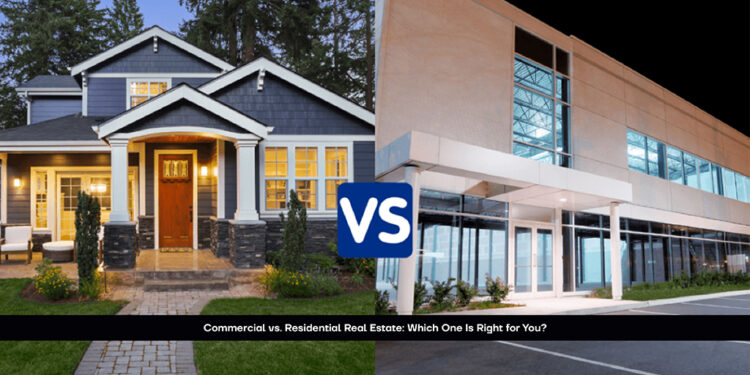Investing in real estate is often considered one of the most stable ways to build wealth. However, when it comes to real estate, there are two primary categories that investors consider: commercial and residential properties. The choice between the two depends on factors like your investment goals, risk tolerance, and the amount of capital you have. Residential real estate typically involves properties like single-family homes, condos, and multi-family buildings. These properties are generally easier to finance, have a lower barrier to entry, and attract a larger pool of potential tenants. For beginners or those with less capital, residential properties are often seen as a more accessible starting point.
On the other hand, commercial real estate involves properties used for business purposes, such as office buildings, retail spaces, and industrial complexes. Commercial properties often require a larger initial investment and tend to come with more complexity in terms of management and maintenance. However, they can offer significantly higher returns. The lease agreements for commercial properties tend to be longer, often ranging from 3 to 10 years, which provides more stability in terms of cash flow. Additionally, commercial tenants are typically responsible for maintenance and other expenses, making it a more hands-off investment compared to residential properties.
One of the biggest advantages of residential real estate is the large and diverse tenant pool. Almost everyone needs a place to live, which means there is generally a high demand for residential properties, especially in urban areas. Residential properties also tend to be less volatile, offering a steady stream of rental income and long-term value appreciation. Additionally, securing financing for residential properties is often easier, with a wide range of mortgage options available. This makes residential real estate an attractive option for new investors who want a more stable and straightforward investment without diving into the complexities of commercial deals.
In contrast, commercial real estate can offer higher profitability but comes with more risks and challenges. While the initial investment is higher, the potential returns can be much more significant due to longer-term leases and higher rental rates. However, vacancies in commercial spaces can be more costly, especially in tough economic times when businesses are closing or downsizing. Commercial properties also require a higher level of expertise when it comes to leasing, property management, and market analysis. Investors need to understand local economic trends and be able to secure long-term, reliable tenants to ensure a steady income stream.
Another key difference between commercial and residential real estate is the type of market they serve. Residential real estate is primarily driven by the needs of individuals and families, which means that demand is more influenced by factors like population growth, income levels, and housing supply. Commercial real estate, on the other hand, is largely driven by business trends, such as the demand for office space, retail locations, or warehouses. Economic downturns can impact commercial properties more dramatically because businesses are more likely to downsize or close, while individuals still need homes. As a result, commercial real estate can be more volatile during economic shifts.
The management of these properties also differs significantly. Residential properties often require more hands-on management, especially if you are renting to tenants directly. Things like tenant complaints, maintenance issues, and lease renewals can be time-consuming. On the other hand, commercial properties tend to require more administrative management rather than day-to-day maintenance. While commercial tenants often handle maintenance, investors must deal with longer lease terms, which can create challenges if businesses decide to vacate. Residential properties are generally easier to sell, while commercial properties can take longer to find buyers, given the specific market needs and higher price points.
In conclusion, whether you should invest in commercial or residential real estate depends on your financial goals, expertise, and risk appetite. Residential real estate offers a more straightforward and stable investment with a larger tenant pool and lower barriers to entry. It’s ideal for new investors who want a more hands-off approach to real estate. On the other hand, commercial real estate offers the potential for higher returns but comes with increased complexity, higher risks, and the need for more significant capital. Whichever path you choose, it’s essential to conduct thorough market research and have a clear investment strategy to succeed in the world of real estate.















 The Inc Media is one of the most renowned global Online Business Magazines, that carries news stories about entrepreneurship, small business management, and business. Being a global business magazine, we carve for influential stories and try to take them globally to uplift the business standards and educate the people about new innovations in the business world...
The Inc Media is one of the most renowned global Online Business Magazines, that carries news stories about entrepreneurship, small business management, and business. Being a global business magazine, we carve for influential stories and try to take them globally to uplift the business standards and educate the people about new innovations in the business world...